Home — Collections — Books to help you get ready for the future of work
Books to help you get ready for the future of work
Table of Contents
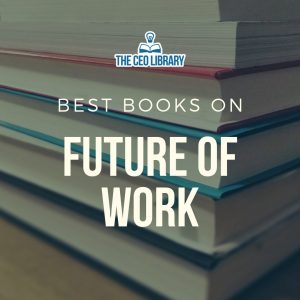 No jobs are safe from automation and machine learning, and long gone are the times when professions were for life. There are so many jobs that didn’t even exist a decade ago, and who knows what will happen in a few years.
No jobs are safe from automation and machine learning, and long gone are the times when professions were for life. There are so many jobs that didn’t even exist a decade ago, and who knows what will happen in a few years.
With the jobs market more and more unstable and insecure, lifelong education is key. At the same time, what kids are learning in school is rendered obsolete faster and learning resources are becoming increasingly commoditized. Those who are at the beginning of their careers might have to readjust or reinvent themselves in a few years, as knowledge decays in time, although we never actively try to “upgrade” that information.
As Shane Parrish from Farnam Street was writing in this article about the half-life of information: “Information has a predictable half-life: the time taken for half of it to be replaced or disproved. Over time, one group of facts replaces another. As our tools and knowledge become more advanced, we can discover more — sometimes new things that contradict what we thought we knew, sometimes nuances about old things. Sometimes we discover a whole area that we didn’t.”
In order to cope with the accelerated and stressful pace of change, we can’t afford to be complacent. Not if we want to thrive in the new economy. We need to work on gaining more skills and be (emotionally) prepared to start from scratch whenever we need to. We should focus on learning how to learn, be open minded, change our mind easily, according to variables and new situations.
Yes, it’s harder to create a strategy and plan for the long term, as opposed to giving laws that just regulate any new technology. However, trying to oppose technological changes will only delay them, it doesn’t mean that they won’t happen anyways.
If you want to be prepared for the future of work, the instability and uncertainty of the new age, here are a few books that we recommend.
Best books to prepare for the future of work:
1. 21 Lessons for the 21st Century, by Yuval Noah Harari
This is the recent book by Yuval Noah Harari, a historian and author whose books I highly recommend. You probably heard about “Sapiens” and “Homo Deus”: in Sapiens he talks about the history of humanity, in Homo Deus he challenges us to debate the future challenges of humanity, and in 21 Lessons for the 21st Century he talks about the immediate challenges we face, such as automation and machine learning, climate changes, and others.
Here’s what Bill Gates says about this book:
“Harari is such a stimulating writer that even when I disagreed, I wanted to keep reading and thinking. All three of his books wrestle with some version of the same question: What will give our lives meaning in the decades and centuries ahead? So far, human history has been driven by a desire to live longer, healthier, happier lives. If science is eventually able to give that dream to most people, and large numbers of people no longer need to work in order to feed and clothe everyone, what reason will we have to get up in the morning?
It’s no criticism to say that Harari hasn’t produced a satisfying answer yet. Neither has anyone else. So I hope he turns more fully to this question in the future. In the meantime, he has teed up a crucial global conversation about how to take on the problems of the 21st century.”
2. The Inevitable: The 12 Technological Forces That Will Shape our Future, by Kevin Kelly
Kevin Kelly is the co-founder of Wired magazine. In 2016, he published “The Inevitable“, a nonfiction book that forecasts twelve technological forces that will shape the next thirty years.
But this isn’t just a book for those interested in tech. It’s accessible to anyone who wants to see the bigger picture and find out what the future will bring us.
Kevin Kelly projects that what will happen in the next thirty years is inevitable, driven by technological trends that were already set in motion in the past thirty years. These forces will revolutionize the way we work, learn, live, communicate. He dedicates a chapter to each of them, but they could have easily been subjects for 12 separate books.
Read it to find out who will benefit and profit in the future. Read it before the future catches up with you.
16w
Here’s why Matthieu David-Experton, the CEO and Founder of Daxue Consulting, recommends it:
“I read The Inevitable by Kevin Kelly and it gave me a lot more perspective on the future and how I can participate in the next big changes the world is going to go through. It is both a practical and conceptual book.”
3. Deep Thinking: Where Machine Intelligence Ends and Human Creativiy Begins, by Garry Kasparov
Garry Kasparov‘s book, “Deep Thinking”, tackles what artificial intelligence means for our society and how to thrive as humans in a world of intelligent machines. The kind of book that you can’t wait to have 5 minutes to read one more page (and to highlight half of it, while wondering when it’s too much highlighting).
Here are two of my favorite quotes from it:
“Educating and retraining a workforce to adapt to change is far more effective than trying to preserve that workforce in some sort of Luddite bubble. But that takes planning and sacrifice, words more associated with a game of chess than with today’s leaders.”
“Romanticizing the loss of jobs to technology is little better than complaining that antibiotics put too many grave diggers out of work. […] What a luxury to sit in a climate-controlled room with access to the sum of human knowledge and lament how we don’t work with our hands anymore! There are still plenty of places in the world where people work with their hands all day, and also live without clean water and modern medicine. They are literally dying from a lack of technology.”
4. The End of Jobs, by Taylor Pearson
Taylor Pearson is an entrepreneur and author, who writes about the future of jobs, thinking models, business strategies, blockchain technology, personal development and more (and also one of the few people I’ve devoured their whole blog archive and am a loyal newsletter subscriber).
Sujan Patel, co-founder of Web Profits, said this about his book:
“Entrepreneurs largely celebrate the end of the dreaded 9-to-5 and are ready to dive headfirst into a world where they call the shots. The End of Jobs argues that rapid advancements in technology and globalization are leveraging points in the accumulation of wealth, meaning and freedom. This eye-opening book will give reluctant entrepreneurs the nudge they need, with sobering statistics on why the century-long growth in wages stopped in 2000, and why MBAs and JDs can’t land jobs, let alone pay off their significant debt.”
5. Technology vs Humanity: The Coming Clash Between Man and Machine, by Gerd Leonhard
Gerd Leonhard is a futurist, founder of The Futures Agency, traveling the world to deliver customized advice to enterprises and public organizations of all kinds, helping them understand their future choices and challenges.
I’ve been following Gerd Leonhard’s work for more than 10 years – first as someone involved in the music business, as this was his initial field of interest as well (Gerd is a musician and creative by background, and wrote a book called “The Future of Music” – I first got to meet and interview him in 2009, at MIDEM, the biggest music industry festival in the world, held each year at Cannes.
In his new book, he blends humanism with futurism to explore the near-future. His book alerts the world to the imminent ethical and moral choices we have to confront soon.
I also recommend his newsletter, where he curates interesting articles on the ethics and future of work, technology and humanity, and shares his input.
6. HEDGE: A Greater Safety Net for the Entrepreneurial Age, by Nicolas Colin
‘HEDGE‘ is a great book written by French author Nicolas Colin. Colin is the Director and co-founder of The Family, an accelerator that works as a platform for pan-European startups. Colin’s also renowned for his work on finance, policy and strategy in the entrepreneurial age.
In HEDGE, he talks about building a new safety net for the new age of entrepreneurship, while taking us through a history of social and economic institutions, how they’re interlinked with politics, corporate world, entrepreneurship, science, and how the paradigm has shifted.
Strategist Dan Colceriu explains why you should read it:
“As a corporate strategist in the fintech vertical, the book has captured my imagination by surfacing a few important paradigm shifts, such as the rise of the multitude as a power structure in the corporate value-chain (end-users are now both consumers and suppliers), the implications of increasing returns to scale to business models, and the imperative of reinventing consumer finance and insurance based on how people will live and work in the future (more hunting, less settling, changing jobs faster, the new reality of continuous risks that are now part of people’s lives). As I grasped with this perspective, and then re-assessed the current fintech landscape, it gave me a new theory about the startups that might be the winners in this space – because there’s a difference between radical reinvention of finance and the simple digitization of it, by applying a layer of tech on top of existing practices.”
7. Average is Over, by Taylor Cowen
Renowned economist and bestselling author Tyler Cowen explains that high earners are taking ever more advantage of machine intelligence and achieving ever-better results. Meanwhile, nearly every business sector relies less and less on manual labor, and that means a steady, secure life somewhere in the middle—average—is over.
In Average is Over, Cowen lays out how the new economy works and identifies what workers and entrepreneurs young and old must do to thrive in this radically new economic landscape.
Media strategist and author Ryan Holiday highly recommends it:
“This was the most important book I read this year. It’s the only one I framed a passage from to put on my wall. It was the only one I thought was so good I bought for multiple other people this year […]. Cowen’s books have always been thought provoking, but this one changes how you see the future and help explain real pain points in our new economy–both good and bad. Although much of what Cowen proposes will be uncomfortable, he has a tone that borders on cheerful. I think that’s what makes this so convincing and so eye opening. A hollowing out is coming and you’ve got to prepare yourself (and our institutions) as best you can.”
8. AI Superpowers, by Kai-Fu Lee
I updated the list in order to include this book, written by one of the world’s leading experts on AI and China. I haven’t read it yet, but it’s highly recommended by many people I respect and trust. One of them is Erik Rostad, the creator of Books of Titans project, who did a podcast on this book.
Here’s what he wrote on his Instagram handle that convinced me it’s worthy of adding it to my reading list:
“Finished it this morning. Incredible. I’d go so far as to suggest you stop what you’re reading to read this one. It’s a fantastic mix of AI and humanity with realistic fear and hope for the future. This was perfect timing for topics I’ve been thinking about lately.”
Satya Nadella (Microsoft’s CEO) and Arianna Huffington also recommend this.
OTHERS:
And if you’re looking for books on work culture, I highly recommend “Deep Work“, by Cal Newport, and the series written by Jason Fried and David Heinemeier Hansson, the two co-founders of Basecamp: ReWork, Remote and It Doesn’t Have to be Crazy at Work.
Their books are a series of essays where they talk about “the calm company” – an approach that attacks the long working hours, aggressive “hustle and grind”, excessive workload, chaos and anxiety that became the norm for almost all workplaces.
They are the living proof that it’s possible. They built and have been running a successful, bootstrapped tech business for almost 20 years, without all the chaos, anxiety and stress. And they show you with practical advice what they learned from their experience.
The crucial skill we need in the new economy: the ability to focus, shut out all distractions, and produce work at an elite level – in terms of quality and speed. Something that’s become more and more rare and, at the same time, valuable. This is what Cal Newport’s book “Deep Work“, is about.
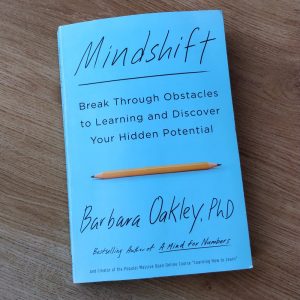 This list wouldn’t be complete if I didn’t mention Barbara Oakley‘s work. Barbara is the co-creator and instructor of the world’s most popular online course, Learning How to Learn, taken by millions on Coursera. She was a Captain in the U.S. Army, a Russian translator, radio operator at the South Pole Station, teacher in China, engineer, professor, author of eight books, and more – a true polymath. Her research involves bioengineering, neuroscience and cognitive psychology.
This list wouldn’t be complete if I didn’t mention Barbara Oakley‘s work. Barbara is the co-creator and instructor of the world’s most popular online course, Learning How to Learn, taken by millions on Coursera. She was a Captain in the U.S. Army, a Russian translator, radio operator at the South Pole Station, teacher in China, engineer, professor, author of eight books, and more – a true polymath. Her research involves bioengineering, neuroscience and cognitive psychology.
In the new world, where we constantly need to learn and reinvent ourselves, her work shows us how, with practical examples from people all over the world.
Yes, significant, deep change is possible, and can occur thanks to learning. If you’re looking for a transformation of your life, if you want to start from scratch, learn new skills, use your talents to build a new, uplifting career – no matter your age, preconceived conceptions, what you’ve been told in school, or other obstacles, Barbara’s books (“A Mind for Numbers” and “Mindshift“) and online course are for you!
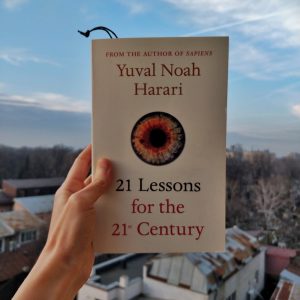
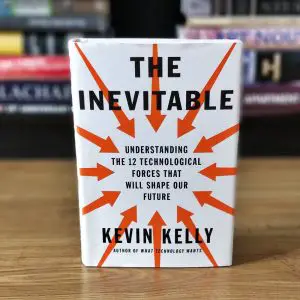
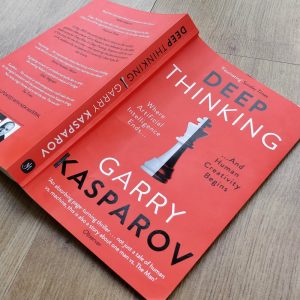
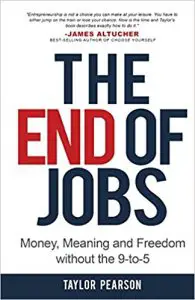


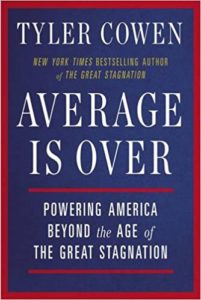

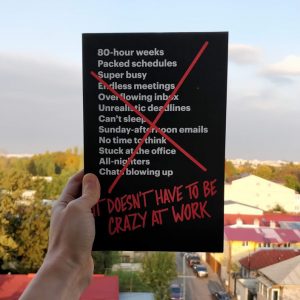
1 Comment